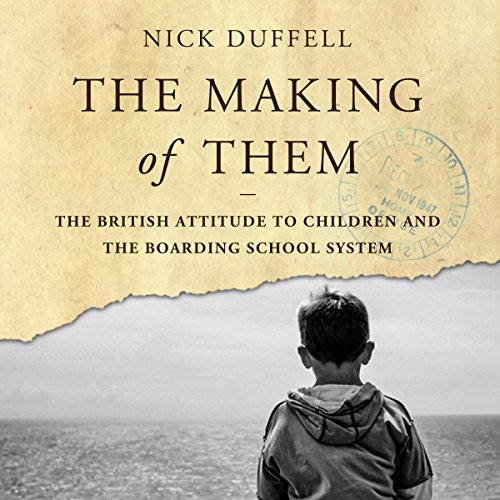At the dawn of the 21st century, British society is still shaped by a private education system devised to gentrify the Victorian middle classes and produce gentlemen to run the Empire. Yet it is not on the political agenda. It is rarely the subject of public debate, and we remain blind to its psychological implications. Can we afford to go on ignoring this issue? Will we continue to sacrifice the welfare of our children to satisfy our antiquated social aspirations?
Why do the British still send their children away to boarding school? What are the attitudes underpinning this practice which mystifies foreigners? What does it mean for a child to be sent away from home and immediately have to survive in an unfamiliar custom-ridden world, without love, family life, or privacy? Will it be “the making of him”, or will it be a trauma from which he may never recover?
No theory of child development supports the British habit of boarding. Unsurprisingly, it consequently turns out products marked by their ability to function confidently in outer social contexts, as well as their extreme fear of intimacy – in fact, any circumstance that would excite the vulnerability that had to be disowned in childhood along with their parental attachments. Ex-boarders therefore find family life, intimate relationships quite a challenge. Equally, those ex-boarders in positions of power struggle to comprehend those who are economically vulnerable and have a pathological fear of belonging.
This groundbreaking and widely acclaimed book outlines the history of the boarding project and explains “Boarding School Syndrome” and the building of the “Strategic Survival Personality”. It is as useful for survivors of the system as for parents, partners, therapists, and educators, and ought to be required for legislators and those interested in the particular character of British society.








Reviews
There are no reviews yet.